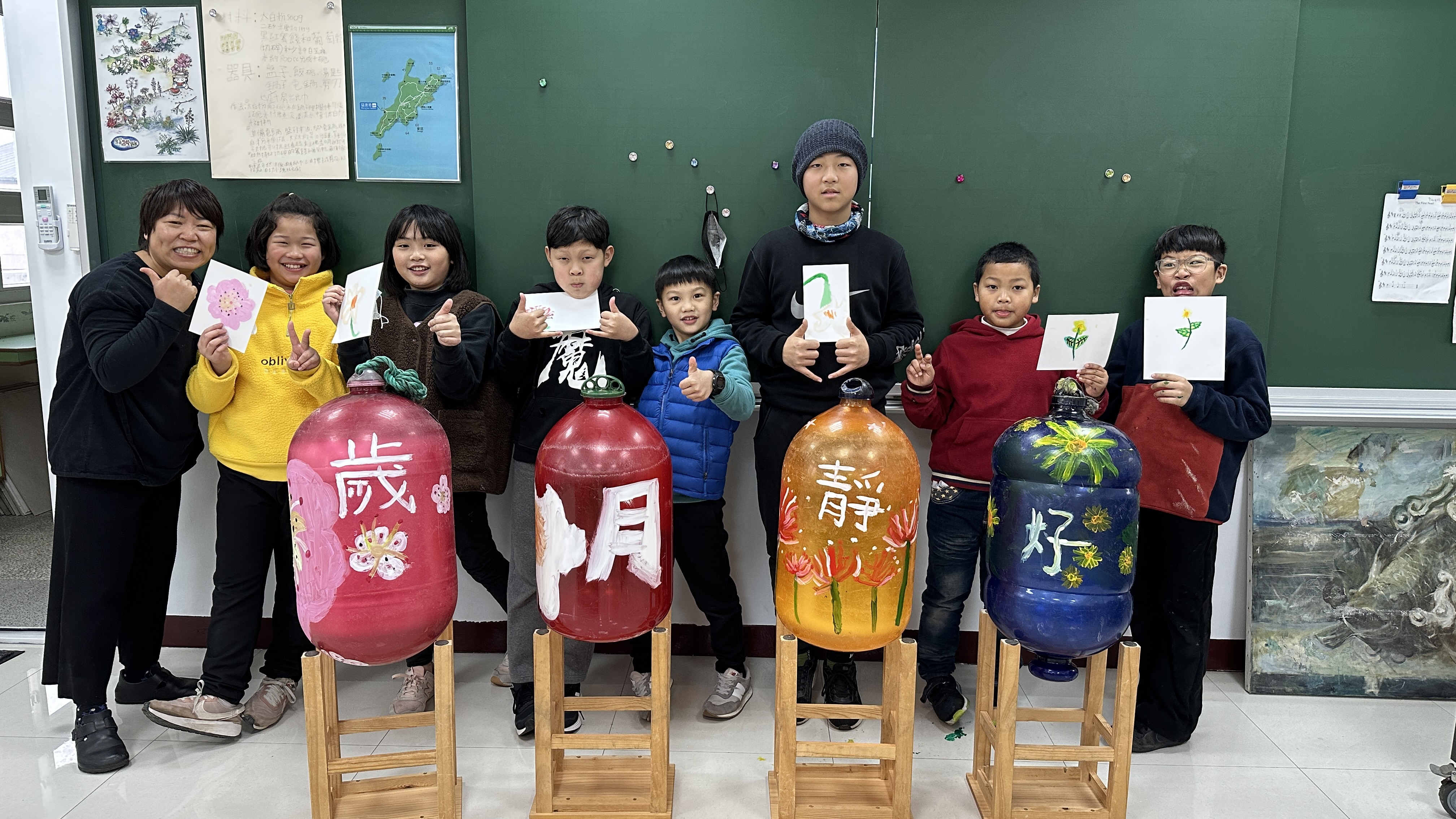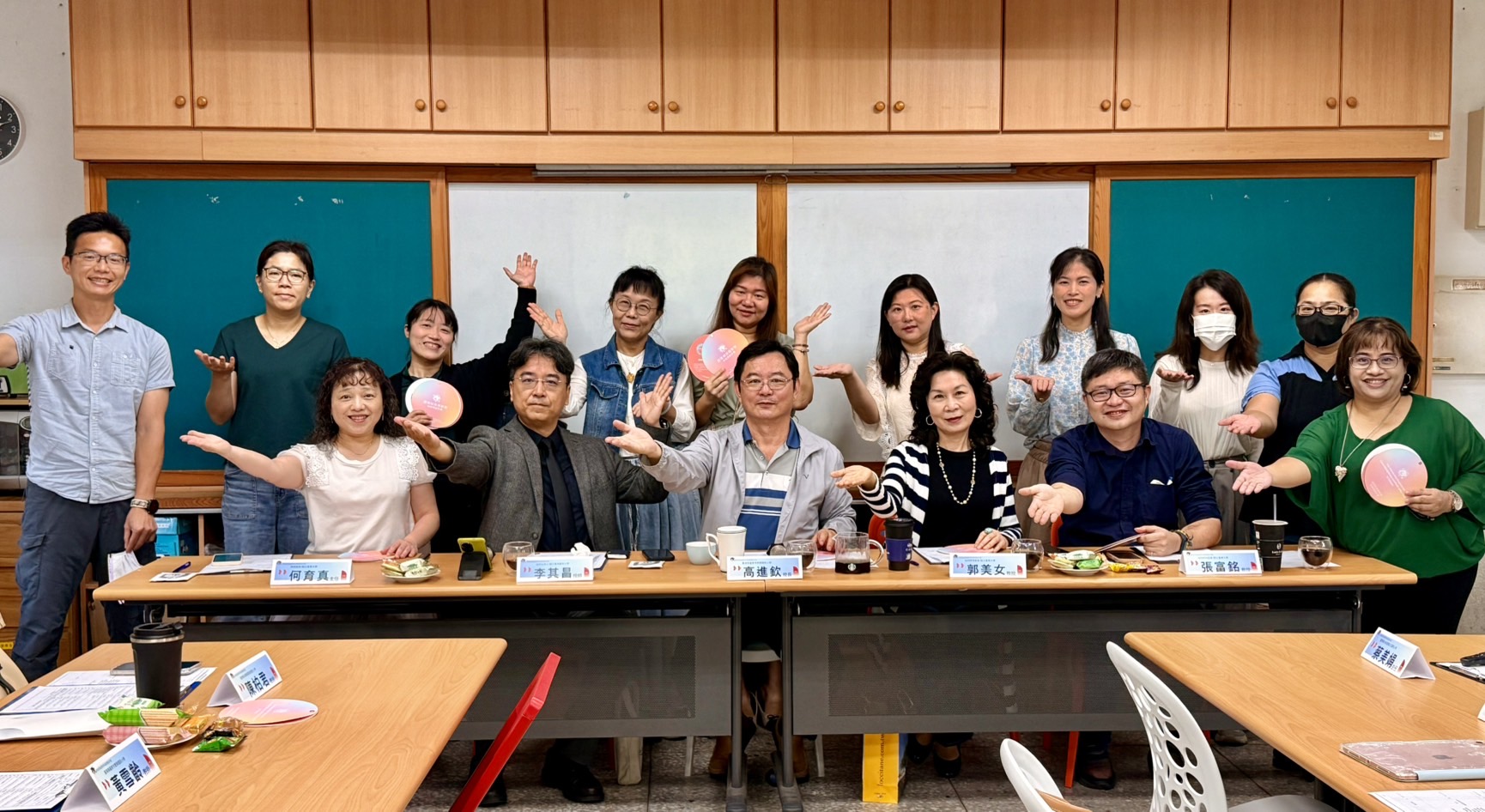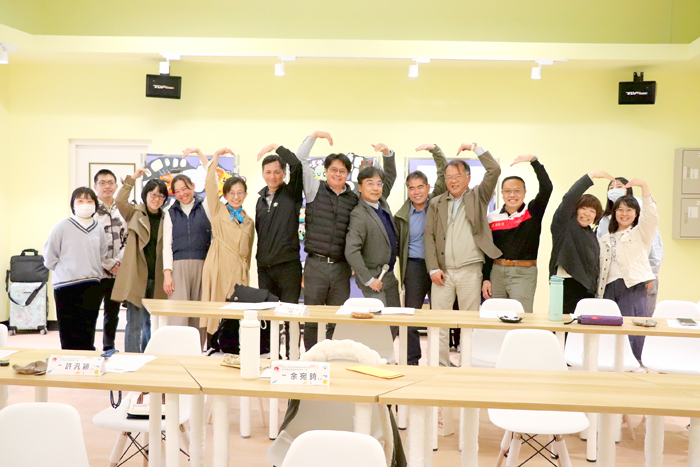Dongju Elementary School was selected as a highlight school by the Ministry of Education to promote aesthetic education
news source:<Mazu Daily>
Lianjiang County Dongju Elementary School is the representative school in the outer island district of the Ministry of Education's "Interdisciplinary Aesthetic Education Excellence Pilot Program". The school has participated in cross-disciplinary aesthetic courses since 106, leading students to learn about important issues such as ocean culture and climate change. , combined with the activities of Matsu International Art Island and artists to jointly create a local and unique Matsu aesthetic course. On this Dongju Island, we can see the school’s efforts in education and allowing students to resonate with their hometown through art. Dongju Country The school has become a highlight school in the Ministry of Education’s promotion of aesthetic education.
The program host, Professor Zhao Huiling from the Department of Fine Arts, National Taiwan Normal University, and the co-hosts, Professor Li Qichang from the Institute of Arts and Humanities Teaching of the National Taiwan University of Arts, Professor Gao Zhenfeng from the Department of Visual Arts at Taipei City University, and Professor Zhuang from the Department of Music at National Taichung University of Education Professor Minren visited the school together on the 10th. Under the enthusiastic guidance of Principal Liu Biyun, they went to the newly renovated art classroom to deliver a course presentation. Teacher Zheng Huiqin, the tutor of the sixth grade class, led three students in the class (Cao Haozhe, Chen Lingyao, and Zhou Zhiyan) to create a rich and exciting curriculum practice by combining artistic creation with other fields.
The "Hear the Sound of Rain" course introduces the depletion of water resources caused by climate change, which has also caused insufficient water for people's livelihood in Dongju area. The teacher introduces the traditional rain praying rituals of various countries and Taiwan to let students understand the importance of protecting water resources; Taking students to the beach to pick up waste bamboo and processing it into rain-sounding rods. The process of making rain-sounding rods requires cross-domain integration capabilities to complete, from selecting available bamboo, penetrating bamboo joints, drilling holes, and designing Through steps such as convolutions, etc., students can learn about bamboo structure, hardness, musical resonance, physical structure and other intellectual learning, and develop problem-solving abilities through learning by doing. In addition to making rain sticks, students also transformed the entire process into a picture book " "Hear the Sound of Rain" serves as the "process archive" of this class's cross-disciplinary aesthetic learning. Principal Liu Biyun said that the rain sticks completed by the children surpassed those in Chile because they were made using waste from the sea. They were also different from the rain sticks made in other areas because they used seeds from exotic plants, which would be detrimental to the local environment. Reusing things from native species and rediscovering the meaning they left behind in Matsu, Matsu’s rain stick is a unique work in the world.
Continuing the issue of sea waste, Dongju Elementary School’s cross-disciplinary aesthetic course "The sea is not waste - Please take a seat and have tea" in the 111th school year integrates the works exhibited in the Art Island into the campus through curriculum practice. Marine waste is a global issue. The "2030 Sustainable Development Goals" (SDGs) released by UNESCO will protect the marine ecology and pay attention to climate change and other issues as the focus of future national development. The school is forward-looking and brings future education into In students' learning, knowledge is comprehensively integrated and integrated with international standards through cross-field learning. The visiting professors from Taiwan appreciated the school’s efforts in promoting the curriculum, and the principal led the teachers to jointly create a new and organic learning model for the children of Dongju. The children of Dongju are so happy!



